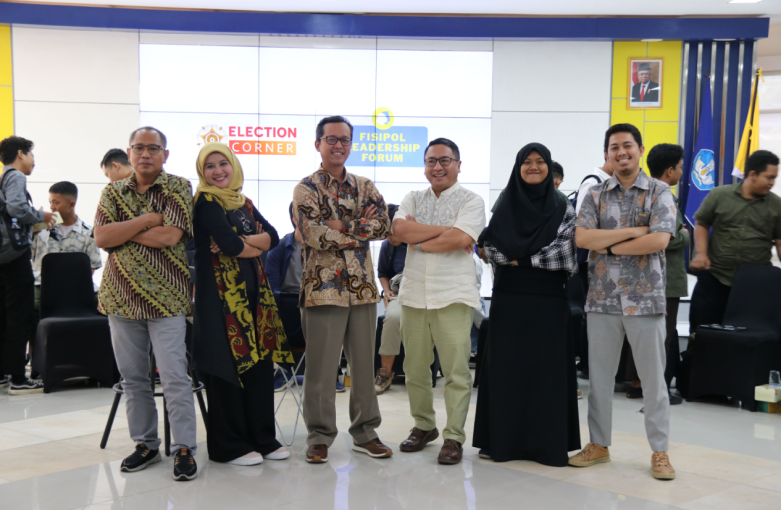
Yogyakarta, 30th August 2023─General elections are an essential feature of every democratic country, including Indonesia. The 2024 elections will be a complex political event that will determine the quality of Indonesia’s democracy. The complexity of the 2024 elections is illustrated by the five voting rights that voters will have simultaneously, ranging from the Presidential and Vice Presidential Elections (Pilpres) to the Legislative Elections (Pileg) to elect members of the DPR RI, Provincial DPRD, Regency/City DPRD, and DPD. Responding to the complexity of the 2024 Election, FISIPOL UGM once again organized the FISIPOL Leadership Forum (FLF) by inviting the Chairman of KPU Yogyakarta, Hamdan Kurniawan on Wednesday (30/8).
“If we talk about challenges, the number will definitely be very large,” Hamdan said, starting the discussion session. Hamdan highlighted three crucial issues in organizing elections, ranging from the rise of fake news, violence in elections, and the safety of election organizers.
Discussing the 2024 elections is important because challenges have and will continue to emerge, including those related to identity politics, money politics, and the position of voters or the people in elections. “It seems that we are still spectators and are treated every day to survey results related to popularity. Very few talk about programs, very few talk about where this nation will be taken and managed,” said the Dean of Faculty of Social and Political Sciences of UGM, Dr. Wawan Mas’udi.
In line with Dr. Wawan Mas’udi’s concerns, the Faculty of Social and Political Sciences lecturer, Mada Sukmajati, also mentioned that by reflecting on the experience of the United States under the Donald Trump administration, the fate of Indonesian democracy will be determined by the 2024 elections. According to him, through the 2024 elections, the quality of democracy will be determined by election organizers, voters, and election participants.
Attending the discussion, Executive Director of the Center for Political Studies (Puskapol) of the University of Indonesia, Hurriyah, said that there is still a gap between procedural and substantive democracy. She also criticized the design of regulations and rules made by the KPU and Bawaslu for not being able to answer and anticipate the challenges that arise. “The rules made by the KPU are always based on normative assumptions of compliance by election participants,” said Hurriyah. According to her, the impact of the KPU’s perspective is the many regulatory products that appear and are accompanied by violations everywhere.
“The rules of the game are not made to identify what potential violations will be committed by election participants and how the rules of the game are made to lock the spaces for these violations. This is what I think the KPU and Bawaslu must answer,” she added.
Another challenge that arises is the representation of women in politics. The leader of the Student Council of the Faculty of Social and Political Sciences (DEMA FISIPOL UGM), Maskana Putri Salwa, underlined the importance of the sustainability of women’s representation in the electoral sphere. “What needs to be considered is that this [women’s representation] must indeed be carried out longitudinally and repeatedly so that more and more women participate,” said Maskana.
